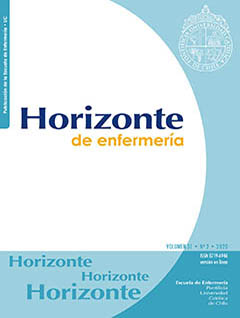FACTORES SOCIOCULTURALES Y CONDUCTAS SEXUALES DE RIESGO DEL VIH EN HOMBRES ADULTOS LATINOAMERICANOS: REVISIÓN SISTEMÁTICA
Contenido principal del artículo
Resumen
Resumen
Human Immunodeficiency Virus (HIV) infection is a global public health problem with negative consequences. Vulnerability to this virus is associated with social and contextual factors that men experience and that can influence sexual behavior. Objective: to conduct a bibliographic review and synthesize the available information on sociocultural factors associated with sexual risk behaviors of HIV in Latin American adult men. Method: A systematic review of the available scientific literature was carried out in 11 databases, PubMed, EBSCO (Academic Search Complete, Academic Search Elite, Academic Source and MedicLatina), Ovid, Springer, Web of Sicence, Scopus, Science Direct and Wiley Online Library. PRISMA guidelines were taken into account and a search strategy was developed to ensure reproducibility. Results: nine articles out of a total of 1210 initially recovered were included, they were carried out in adult men identified as heterosexual, homosexual, bisexual and others. It was found that social support, unemployment, being in a relationship, physical violence, the use of social networks, alcohol consumption and drug use are factors associated with sexual risk behaviors of HIV. Conclusion: most studies are focused on men who have sex with men, however, it is important to consider the sexual behaviors of heterosexual men since they are a culturally important population in making decisions to carry out risky sexual behaviors or safe
